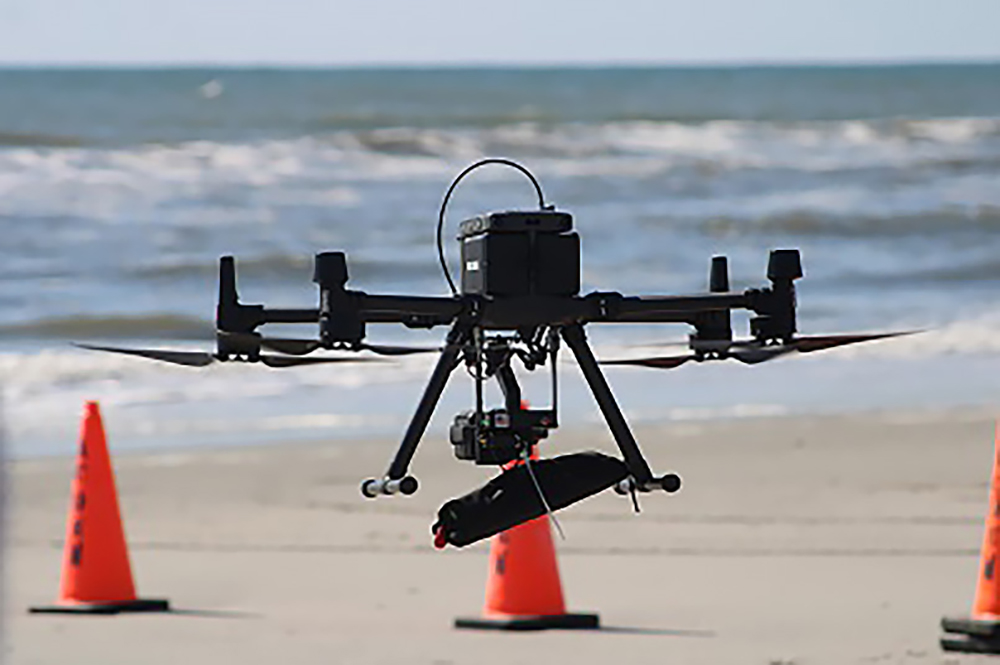By Julia Train
The Atlantic City Public Safety Department has gained another perspective for keeping watch over the beaches: from above.
No, it’s not a bird or a plane. It’s a drone, which will be flying around Atlantic City’s beaches every day starting in July.
Along with the city’s beach patrol, its police and fire departments also received the aerial cameras from the National Aerospace Research and Technology Park, or NARTP, that they use for mapping.
Although the city has had a drone since 2019, the officials rarely used it because of connection issues due to cell towers. However, recently they were given a new, better one through a public safety grant, according to Steve Downey, chief of Atlantic City Beach Patrol.
The Beach Patrol’s original device was a $1500 SwellPro Splash Drone, purchased about five years ago. Its technology is now obsolete, according to Downey.
“The other issue we had with it was that it was small so the battery life only lasts so long when it’s fighting to stay in place from the wind. This one will actually be a lot better for maintaining the battery life,” he said. “Before, we could put the old drone up and only get a few minutes whereas this one we can get a solid 25 to 30 minutes. So that would give us plenty of time to get down and check out areas.”

The new one is a DJI Matrice 30, which costs between $12,000 and $15,000. It’s 3 feet wide and 2 feet high. This drone has a 30-minute battery life. It also is equipped with a speaker and thermal imaging/mapping software.
The drone can be used to respond to swimmers in distress with its camera, infrared technology, PA system and an inflatable rescue device. Once the swimmer is spotted on camera, a life preserver will be dropped in the water as lifeguards make their way to them.
In addition, every evening, from 6 to 8 p.m., there will be an emergency response team using the technology to scan the beaches for dangerous water conditions, such as riptides and shark sightings.
Right now, the ACBP has about eight licensed pilots. It is still in the experimental phase of looking at riptides from above, but they “pretty much know by eye where all the riptides are,” according to Downey.
The Beach Patrol is also using the drone to check on erosion. It is working with the Atlantic City Fire Department to map it out.
The ACBP has taken the new device out four or five times already this year. It can be taken up to 100 yards offshore without a problem picking up signal, according to the chief.
He recalled a time when the drone was tested and found 25 swimmers in the water. They were asked through its PA system to raise their hands if they could hear the pilot. All of them raised their hands.
“So we’ll send it down there and do reconnaissance without actually having to send the manpower down there to do it,” said Downey.
Julia is a student at Rider University, majoring in multiplatform journalism with a minor in social media strategies. At school, she writes and is news editor for The Rider News and is the News Director for the radio station, producing news updates. She’ll be graduating in the spring. Connect with her on Instagram @juliatrain













